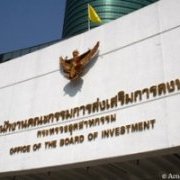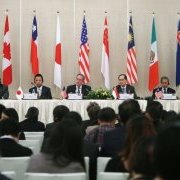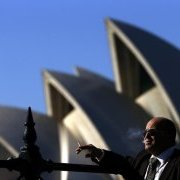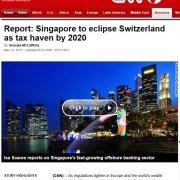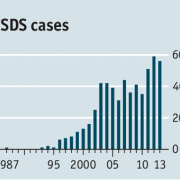3-Nov-2014
Green Left Weekly
Australian-based company OceanaGold is suing El Salvador for US$301 million for its “right” to continue operating a gold mine that is destroying the Central American nation’s water supply.
28-Oct-2014
EU Trade Insights
As the debate in Europe over investors’ rights to sue States is growing, Singapore has been asking the European Commission to agree to a decoupling of the bilateral trade agreement as the country is concerned the investment protection part of the deal could hold up the entire pact.
23-Oct-2014
European Voice
As Juncker gives reassurances to the European Parliament over free trade with the US, 14 member states are urging him to stick to the script.
22-Oct-2014
Central Telegraph
Uruguay files its defence against Philip Morris, a test case for big business lawsuits that could hit the EU through the transatlantic trade and investment deal with the US.
21-Oct-2014
The Conversation
The US is again driving the TPP agenda on behalf of its major export industries, but the TPP proposals are more extreme than the Australia-US FTA, writes Pat Ranald.
16-Oct-2014
Wall Street Journal
Tobacco producers Indonesia, Cuba, Dominican Republic, Honduras and Ukraine are challenging Australia’s plain-packaging laws at the World Trade Organization, bolstering support for Philip Morris’ private dispute against Canberra.
16-Oct-2014
EU Trade Insights
The European Union and Singapore have finally concluded negotiations over a bilateral investment agreement, EU Trade Commissioner Karel De Gucht has told EU Trade Insights in an exclusive interview.
11-Oct-2014
Globe and Mail
Climate change is already causing about $600-billion in damages annually, gobally. Oil and gas companies could soon find themselves on the hook for at least part of the damage.



